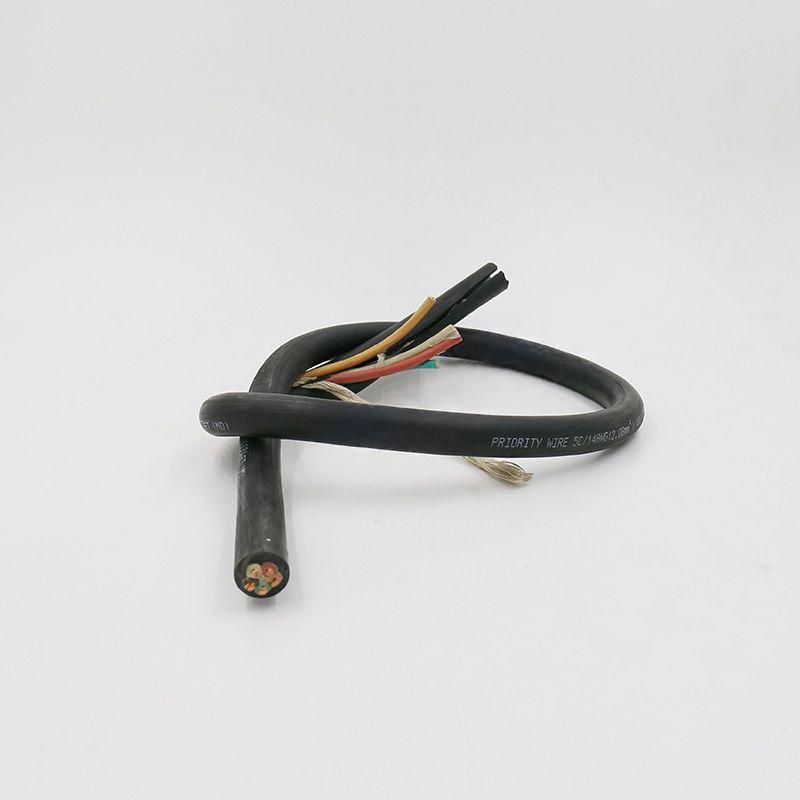តុលា . 11, 2024 22:30 Back to list
Different Varieties of Electrical Cables and Wires for Various Applications
Understanding Different Types of Electric Cable Wires
Electric cable wires are a fundamental component of modern electrical systems. They play a crucial role in power distribution, communication, and electronics. The choice of the right type of cable wire is essential for ensuring safety, efficiency, and reliability in electrical installations. In this article, we will explore the various types of electric cable wires, their characteristics, and their applications.
1. Conductor Types
At the heart of every cable wire is the conductor, which carries the electric current. Conductors are primarily made from two materials copper and aluminum.
- Copper wire is favored for its high conductivity, flexibility, and resistance to corrosion. It is widely used in residential and commercial wiring. - Aluminum wire, while not as conductive as copper, is lighter and less expensive. It is often used for overhead power lines and large utility projects.
2. Insulation Types
The insulation surrounding the conductor is crucial for protecting against short circuits and preventing electric shock. Various insulation materials are used, each with unique properties
- Polyvinyl Chloride (PVC) Commonly used due to its durability and resistance to fire, moisture, and chemicals. PVC cables are versatile and can be used in a variety of applications, including residential wiring.
- Cross-linked Polyethylene (XLPE) Known for its high-temperature resistance and better electrical properties. XLPE is ideal for high-voltage power cables and is often used in industrial settings.
- Rubber Often used in flexible cables, rubber insulation provides excellent resistance to heat and weather, making it suitable for outdoor applications.
3. Types of Cables
Different types of cables are designed for specific applications
- Single-Core Cables These cables consist of a single conductor and are commonly used for simple wiring tasks, such as connecting lights or appliances.
- Multi-Core Cables Containing multiple conductors, multi-core cables are commonly used for more complex electrical systems. They are ideal for applications that require multiple connections, such as in control panels and machinery.
- Armored Cables These cables have additional layers of protection, such as steel or aluminum armor, making them resistant to physical damage. They are used in construction and industrial applications where cables may be exposed to rough environments.
types of electric cable wire

- Twisted Pair Cables Often used in data networking, twisted pair cables consist of pairs of wires twisted together to reduce electromagnetic interference
. They are widely used for telephone and internet connections.- Coaxial Cables Featuring a central conductor surrounded by insulation and a metallic shield, coaxial cables are primarily used for transmitting cable television and internet signals.
4. Specialty Cables
Some applications require specialized cables
- High-Voltage Cables Designed to carry high-voltage electricity, these cables feature robust insulation and thick conductors to prevent electrical breakdown.
- Low-Voltage Cables Used for applications such as landscape lighting and audio systems, low-voltage cables are designed for safe operation in low-power environments.
- Thermocouple Wires Utilized in temperature measurement applications, these wires are designed to withstand high temperatures and provide accurate readings.
5. Choosing the Right Cable Wire
Selecting the appropriate cable wire depends on several factors, including the application, electrical load, environmental conditions, and safety regulations. It is vital to consider the following
- Current Rating Ensure that the cable can handle the electrical load without overheating. - Voltage Rating Choose a cable with a voltage rating that exceeds the operating voltage of the system.
- Environmental Conditions Select cables with suitable insulation for outdoor or harsh environments.
- Compliance Ensure that the chosen cable meets local electrical codes and standards.
Conclusion
Understanding the different types of electric cable wires is essential for anyone involved in electrical installations or repairs. By selecting the right type of cable, you can ensure safe and efficient operation of electrical systems. Whether you are working on a residential project or an industrial installation, the proper knowledge of cable types and their applications will help you make informed decisions and enhance the overall performance of your electrical systems.
Share
-
Reliable Wafer Type Butterfly Valves for Every IndustryNewsJul.25,2025
-
Reliable Flow Control Begins with the Right Ball Check ValveNewsJul.25,2025
-
Precision Flow Control Starts with Quality ValvesNewsJul.25,2025
-
Industrial Flow Control ReliabilityNewsJul.25,2025
-
Engineered for Efficiency Gate Valves That Power Industrial PerformanceNewsJul.25,2025
-
Empowering Infrastructure Through Quality ManufacturingNewsJul.25,2025